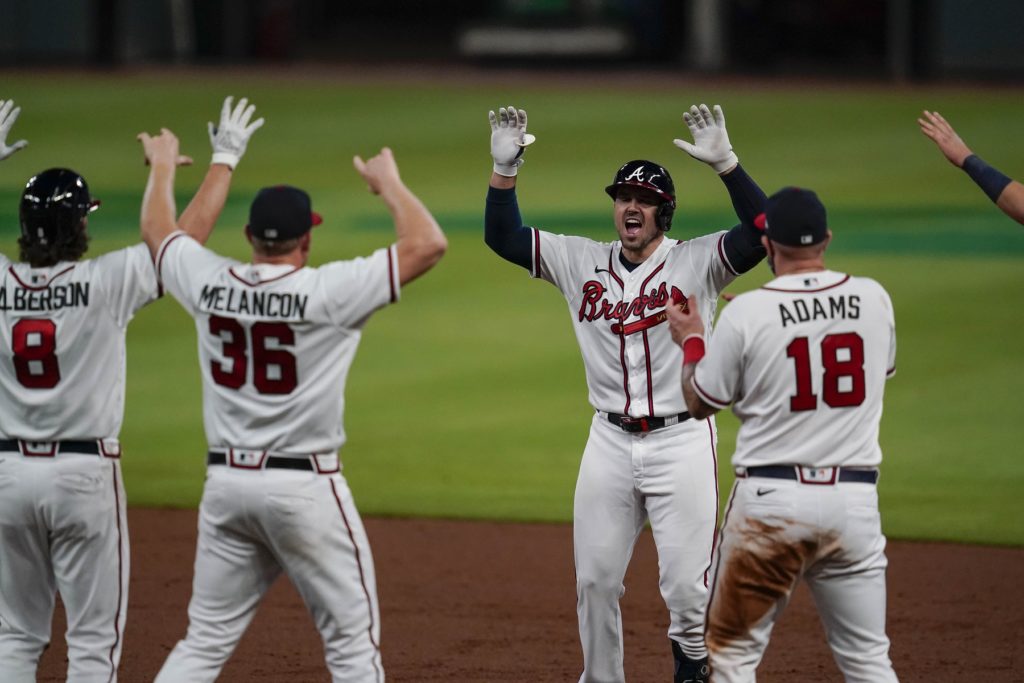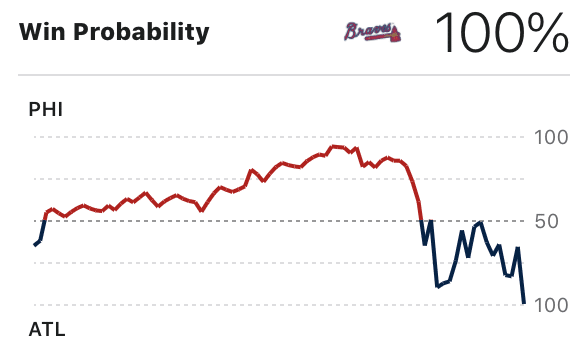Ad Disclosure
Once More, With No Feeling: Phils Quickly Descending Into Irrelevance
By Bob Wankel
Published:

We need not thoroughly recap the events of last night that led to the Phillies’ fifth straight loss. All you need to know this morning is that the Phillies are 9-14, positioned last in the National League East.
You also need to know they lost a game in which they were at some point winning for the fifth time in four days.
In sequential order, they blew 2-0, 2-0, 7-0, 1-0, 4-0 leads. The bullpen, which possesses a Major League-worst 8.29 ERA, faltered in spectacular fashion yet again after Hector Neris tag-teamed with the newly acquired Brandon Workman to sabotage the latest should-have-been win.
After Neris surrendered a run and left men on the corners with one out, he gave way to Workman, who immediately spun a lifeless curveball to Matt Adams. He doubled. The Phillies’ lead was gone after one pitch.
In some sick way, it was an impressive feat. And, somehow, despite the improbability of such a disastrous scenario unfolding (once again), like the Thursday collapse(s) in Buffalo, you could feel it all coming from a mile away.
In fact, according to ESPN, the Phillies held an 82.2 percent win probability to start the bottom of the eighth inning last night. It felt like it was, maybe, I don’t know, 40 percent? A visual:

On the bright side, Neris’ performance prompted what is becoming the annual (and maybe final) J.T. Realmuto “wtf is going on?” face.
Not quite as good as his Jerad Hughes reaction last season, but Realmuto’s response to Hector Neris here is awesome. pic.twitter.com/yWRoB5RZQH
— Bob Wankel (@Bob_Wankel) August 23, 2020
So there’s that, which is nice.
Speaking of Realmuto, I wonder what he is thinking as his contract with the Phillies expires in just 37 games.
Also on the bright side, if (and I use “if” optimistically at the moment) this Phillies season continues its rapid descent into familiar irrelevance, ownership won’t have to see the stinging visual of fan apathy in the form of empty blue seats (not) show up at the park this year. Thank goodness for those cardboard cutouts.
And speaking of ownership, as I watched what happened last night, I couldn’t help but think back to last October when the Phillies fired Gabe Kapler. At the press conference announcing the decision, John Middleton, flanked by Andy MacPhail and Matt Klentak, discussed the role of CEOs.
Watch this. pic.twitter.com/4F0Z6AReOb
— Bob Wankel (@Bob_Wankel) August 23, 2020
If you would like to skip the video, I’ve transcribed his comments:
“We get paid to ensure our organization meets its strategic objectives. Signing Bryce Harper, there’s a direct link between that and achieving a strategic objective of winning a World Series. Signing a relief pitcher for one year, for two million dollars, doesn’t have the same impact. I’m not touching that decision. I don’t think I even want to know about the decision, frankly, and I certainly am not going to have input into the decision. So, yeah, the big decisions is exactly where CEOs have to be. Those are the decisions that make the difference, and that’s what I get paid to figure out.”
There are so many places we could go with this:
- The obvious, impossible-to-ignore reality of Bryce Harper wasting a 1.192 OPS on this mess
- The more obvious, impossible-to-ignore reality that it will be/already is Middleton who ultimately decides the team’s approach to Realmuto’s contract situation
- The most obvious, impossible-to-ignore reality that the Phillies are most certainly not meeting their strategic objectives
And listen, I don’t know what, exactly, are the Phillies’ strategic objectives in 2020, but Middleton was right in that CEOs/managing partners/owners typically aren’t going to make decisions about bullpen arms. However, they do make decisions about the baseball people who get to makes those decisions.
There’s plenty of blame to go around. Whether that blame is born from luxury tax considerations, poor player development, poor player evaluation, or a mix of all three, I can definitively tell you that this current setup is not working.
After last night’s game, Phils manager Joe Girardi discussed his team’s current situation.
“It’s frustrating, but nobody is going to feel sorry for us,” he said.
That’s true, I guess. Personally, I kind of feel sorry for Joe right now.
As for Phillies fans, my guess is they woke this morning feeling angry, fed up, or perhaps most commonly (and worst of all), feeling nothing at all.
Bob Wankel covers the Phillies for Crossing Broad. He is also the Vice President of Sports Betting Content at SportRadar. On Twitter: @Bob_Wankel E-mail: b.wankel@sportradar.com